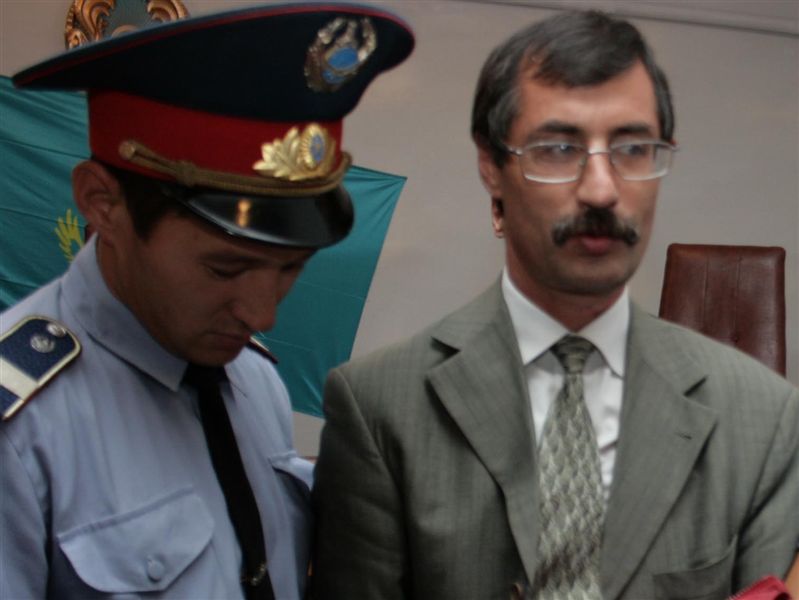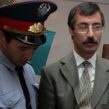
Nazarbayev Perpetuates his Rule as Kazakhstan Prepares for OSCE Chairmanship
Publication: Eurasia Daily Monitor Volume: 6 Issue: 187
By:

Recent developments in Kazakhstan clearly indicate that the human rights record and its press freedom are worsening as the country prepares to take hold of the Chairmanship of the Organization for Security and Cooperation in Europe (OSCE) next year. On September 4, the Balkhashinskiy district court in Almaty region sentenced Yevgeniy Zhovtis, the Director of the International Bureau for Human Rights and Rule of Law in Kazakhstan to four years imprisonment in a penal colony. On July 26, Zhovtis accidently killed a man in a fatal road accident. Although Zhovtis was later forgiven by the relatives of the victim, the court remained adamant. The unfair court decision, apparently driven by political considerations, provoked a chain of protest meetings by human rights campaigners within Kazakhstan as well as internationally. The court ruling was also strongly criticized by the OSCE. On September 10, the United States mission to the OSCE released a statement on the case, complaining that it involved a “number of procedural irregularities” and an “apparent lack of due process” (www.osce.usmission.gov, September 10).
Earlier, the National Security Committee (KNB) launched a court case against Ramazan Yesergepov, the editor of an independent Almaty newspaper, accused of allegedly running a smear campaign aimed at damaging the reputation of the KNB. He was also imprisoned amid public protests. According to Rozlana Taukina, the Chairman of the Journalists in Danger NGO, Yesergepov committed no punishable crime and merely performed his journalistic duties, only exposing lawlessness among Kazakh intelligence officers (Azat, August 27).
On similar charges, Kazakh law enforcement bodies recently suspended the publication of the independent Respublika and Taszhargan newspapers. The leading BTA Bank of Kazakhstan launched a court case against Respublika demanding $500,000, a fine which no newspaper in Kazakhstan could afford, for allegedly spreading false information about the activity of the bank. In a further effort to restrict the freedom of the press, in April this year, the lower house of parliament dominated by the pro-presidential Nur Otan party, almost unanimously adopted amendments to the media law. Under the amended law, all websites in Kazakhstan are now regarded as mass media outlets and bloggers, or owners of websites are held accountable for anything they publish. It appears to impose censorship over internet resources.
The introduction of restrictive measures and the persecution of journalists have left many analysts guessing about the underlying rationale of resorting to such authoritarian methods at a crucial moment before the anticipated chairmanship of the OSCE. Some suspect that rival groups within the ruling elite are working against President Nursultan Nazarbayev to damage his image in the eyes of the West as he further consolidates his power. In recent years an internal power struggle has intensified between the tandem of the presidential son-in-law Timur Kulibayev and Prime-Minister Karim Masimov on the one hand and the top echelon of the siloviki including the general-prosecutor’s office, the KNB and the agency for Fighting Economic and Corruption Crimes (Financial Police). In an environment of endless political intrigue, Nazarbayev can only rely on his Nur Otan party and a docile parliament consisting of his hand-fed loyal deputies.
In a recent move to perpetuate Nazarbayev’s presidency, the Chairman of the Nur Otan party Darkhan Kaletayev proposed that parliament should adopt a law on “the leader of the nation,” which would make Nazarbayev a life-long president. Earlier, the idea of perpetuating Nazarbayev’s rule by abolishing presidential elections and granting Nazarbayev an unlimited term in office was suggested by a university teacher in Aktobe, the home-town of the head of presidential administration Aslan Mussin. Zharmakhan Tuyakbay, the leader of the opposition National Social Democratic party and the main contender in the last presidential election, believes that Nazarbayev does not need a law declaring him as the lifetime leader of the nation, because in 2007 parliament had granted him an unlimited presidential term (Panorama, September 18).
Opposition forces in Kazakhstan plan to collect signatures and stage protests to warn parliament of the potentially far-reaching political consequences of adopting such a controversial law. Evidently, Nazarbayev’s close entourage is eager to keep him in office as long as possible. Moscow and Washington might be equally keen to maintain his continued rule. In the Kremlin’s view, Americans refrain from interfering in the political processes in Kazakhstan and put up with the authoritarian behavior of Nazarbayev as long as Kazakhstan backs its efforts in Afghanistan. Despite the differences over the rights of ethnic Russians in Kazakhstan, and the sporadically discussed projects for alternative routes for the shipment of hydrocarbons from Kazakhstan bypassing Russia, Astana also maintains a “strategic partnership” with Moscow (www.kmnews.ru, September 14).
Aware of his unassailable position, and feeling little or no external pressure, Nazarbayev is gradually dealing with the domestic opposition and also silencing the press. In its new role as chair of the OSCE one would expect that Kazakhstan would become more open and transparent as it distances itself from its Soviet past. Paradoxically, it seems that the closer Kazakhstan moves toward chairing the OSCE, the bleaker its image is becoming.




